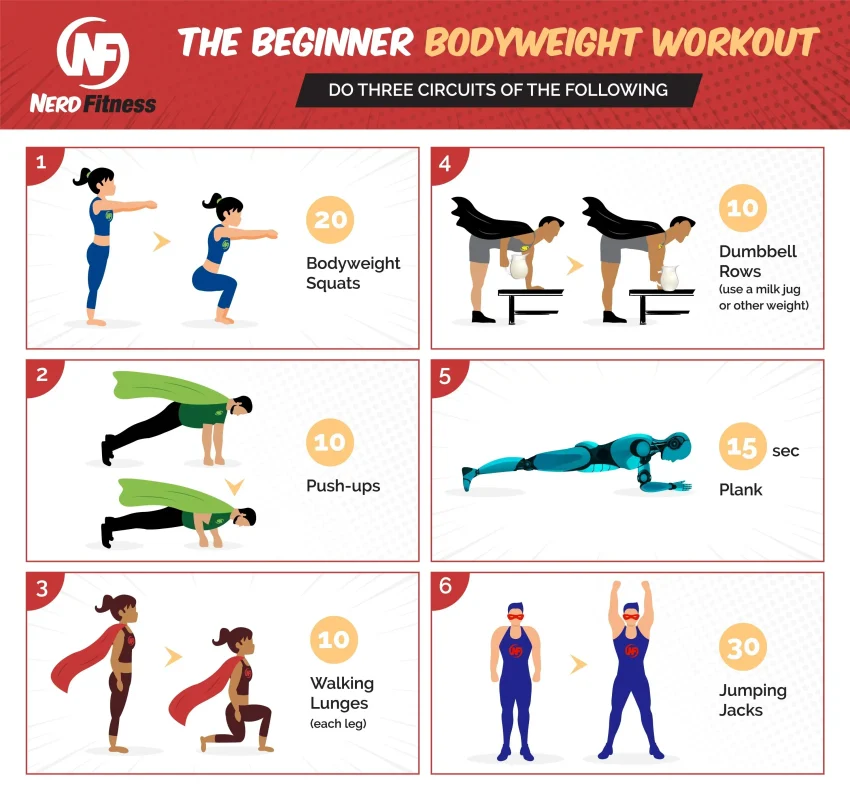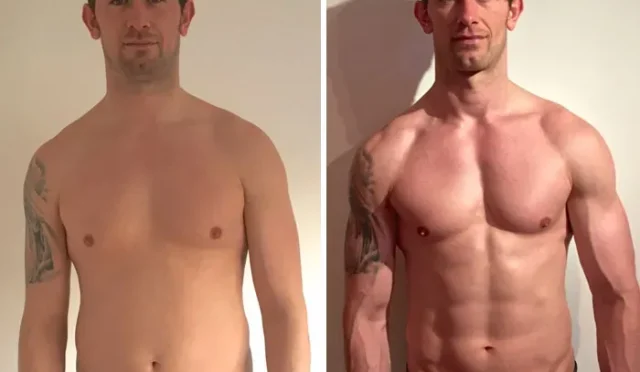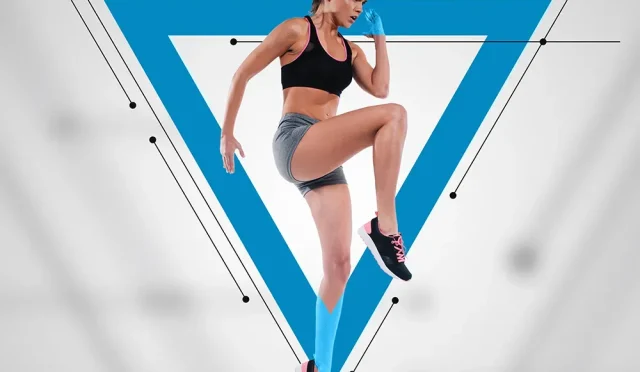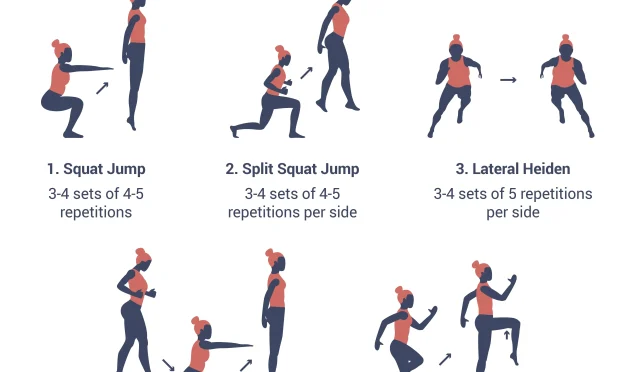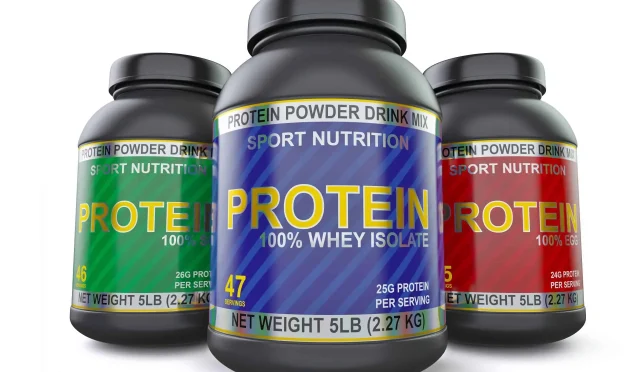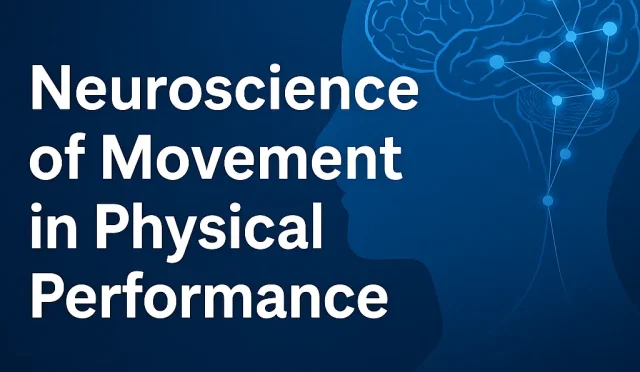Fitness for Beginners: Your Ultimate Guide to Getting Started
Fitness for beginners is not just a trend; it’s a fulfilling lifestyle choice that can transform your health and well-being. As you embark on your journey to improve your fitness, it’s crucial to familiarize yourself with beginner fitness tips that will guide you every step of the way. Setting achievable fitness goals for beginners can provide clarity and direction, making your path less daunting and more rewarding. Along the way, incorporating exercise tips for beginners can enhance your workout experience, ensuring that you stay motivated and engaged. Don’t overlook the importance of nutrition for beginners, as a balanced diet will complement your physical efforts and accelerate your progress.
Embarking on a new fitness adventure can feel like a daunting task for those just starting out. Whether you refer to it as kicking off a wellness routine or diving into physical training, the key remains the same: knowledge is power. Familiarizing yourself with beginner exercise strategies is paramount to fostering a successful endeavor. By establishing clear health objectives and following specialized workout guidelines, newcomers can enhance their athletic performance effectively. Additionally, understanding the significance of proper meal plans can vastly improve your overall fitness progress, making it easier to maintain a balanced and healthy lifestyle.
The Importance of Setting Realistic Fitness Goals for Beginners
Setting realistic fitness goals is crucial for anyone embarking on their fitness journey. For beginners, having achievable targets can prevent feelings of overwhelm and disappointment. Instead of jumping into intense workouts, aim for small, incremental objectives, such as working out three times a week for 30 minutes. Tracking your progress with a journal or app can help you stay motivated and adjust your goals as necessary. By celebrating small victories along the way, you nurture a sense of accomplishment that encourages you to keep pushing forward.
Moreover, it’s important to tailor your goals to fit your personal lifestyle and preferences. Your fitness goals should not be one-size-fits-all; they should resonate with your interests and capabilities. Consider incorporating different types of activities into your routine—like walking, cycling, or swimming—to keep things exciting. As you achieve these small goals, you can gradually set more challenging ones, ensuring your fitness journey remains both inspiring and enjoyable.
Creating a balanced routine is necessary for building a comprehensive fitness plan. This routine should consist of cardio, strength training, and flexibility exercises. Experts recommend dedicating at least 150 minutes weekly to moderate-intensity cardio activities. As a beginner, whether you’re jogging in place or utilizing an elliptical machine, the idea is to find cardio workouts that you enjoy and can stick with. Incorporating activities that elevate your heart rate while being enjoyable makes the journey more sustainable.
Strength training is another pillar of a balanced fitness routine. For beginners, this could involve bodyweight exercises like squats and push-ups, which strengthen your muscles without requiring heavy equipment. Aim to include strength training sessions at least twice a week, focusing on different muscle groups to ensure a balanced development. This not only builds strength but increases metabolic health, making your body more efficient at burning calories and aiding in fat loss.
Effective Cardio Workouts for Beginners: Get Started Safely
Cardiovascular workouts are foundational to any fitness regimen, especially for beginners. Engaging in activities such as brisk walking, jogging, or cycling can help enhance your endurance and promote weight loss. The beauty of cardio workouts lies in their versatility; you can choose indoor activities, such as using a treadmill or elliptical machine, or enjoy the great outdoors by cycling or hiking. To avoid burnout, start with shorter sessions—aim for 20 to 30 minutes—and gradually build up to longer durations as your stamina improves.
It’s also beneficial to incorporate variety into your cardio workouts, which can keep the routine enjoyable. Consider joining group classes like Zumba or kickboxing, which provide a fun atmosphere while promoting physical fitness. Additionally, exploring different routes or terrains when walking or jogging can make the experience more engaging. Remember, consistency is key; by integrating cardio into your weekly schedule, you’ll gradually develop the capacity to tackle more intense workouts in the future.
Strength training is integral for beginners aiming to build muscle and enhance metabolic health. Starting with basic body-weight exercises, such as squats and lunges, allows you to develop strength safely without the intimidation of heavy weights. A great approach for beginners is to focus on form and technique before increasing the weight or resistance. This progressive enhancement helps prevent injuries while maximizing effectiveness—two crucial aspects of a beginner’s journey.
It’s also worth noting that incorporating resistance training not only increases muscle strength but makes daily activities easier. As you build lean muscle, your body burns more calories at rest, enhancing your overall metabolism. To avoid plateauing and keep motivation high, gradually introduce new exercises into your routine, or increase your weights, while tracking your progress. This strategic progression ensures that you remain challenged and continuously moving towards your fitness goals.
Essentials of Flexibility and Recovery for New Exercisers
Incorporating flexibility exercises into your fitness routine is essential for maintaining a healthy range of motion and preventing injuries. For beginners, activities like yoga or dedicated stretching routines can be immensely beneficial—both for cooldown after workouts and as standalone practices. Not only do they promote flexibility, but they also enhance relaxation and mental clarity, supporting an overall sense of wellbeing. Aim for at least 10 to 15 minutes of stretching post-exercise to keep your body agile and reduce the risk of injury.
Furthermore, understanding the importance of recovery days is crucial for any novice fitness enthusiast. When you engage in regular workouts, your body needs time to repair and rebuild muscle tissues, which happens during rest periods. Experts suggest including at least one to two rest days weekly, allowing your muscles to recover adequately. Listening to your body is key—if you feel fatigued or experience soreness, don’t hesitate to take an extra rest day to promote effective recovery.
Choosing activities you genuinely enjoy plays a significant role in sustaining your fitness journey. When you’re excited about the workouts you’ll be doing, it makes it easier to stick to your routine and push through the challenging days. The key is to explore various options—like swimming, hiking, or even group dance classes—to find what resonates with you. This personal connection makes exercising feel less like a chore and more like a pleasurable activity.
Additionally, consider surrounding yourself with a supportive community or workout buddies. Engaging in fitness activities with friends or joining a local class can foster a sense of accountability and encouragement. Not only will you motivate each other, but sharing experiences also enhances camaraderie, making your fitness journey enjoyable and social. Remember, finding joy in your activities will lead to a long-lasting commitment to your fitness goals.
Nutrition for Beginners: Fueling Your Fitness Journey
Nutrition is a vital aspect of any fitness journey, especially for beginners. A balanced diet rich in whole foods—like fruits, vegetables, lean proteins, whole grains, and healthy fats—is crucial in fueling workouts and aiding recovery. Rather than adhering to strict diets, focus on making healthier food choices that nourish your body. Keeping meals simple and balanced can help ensure you’re receiving essential nutrients that support your fitness goals.
Additionally, understanding portion control and mindful eating can significantly impact your nutrition. As a beginner, it’s important to listen to your body’s hunger cues and eat when you’re genuinely hungry. Prepping meals in advance can also save time and help prevent impulsive poor choices. Remember that all food can fit into a healthy diet; the key is moderation and balance. Ensuring you’re eating enough to support your activity level will optimize your progress.
Staying hydrated is equally important when embarking on a fitness journey. Water plays a crucial role in regulating body temperature and joint lubrication, making it essential during exercise. As a beginner, aim for at least eight 8-ounce glasses of water per day, adjusting based on your activity level and environmental factors. During workouts, both hydration and replenishing electrolytes can enhance performance and recovery significantly.
Consider carrying a reusable water bottle with you throughout the day to remind yourself to hydrate regularly. Making hydration a habit can lead to better overall health and performance in your fitness routine. Remember, adequate nutrition and hydration complement your workouts, fostering optimal progress on your fitness journey.
As you progress further along your fitness journey, it’s essential to acknowledge the importance of gradual improvement. Increasing intensity, duration, or frequency too quickly can lead to injuries, which are counterproductive to your goals. For beginners, focusing on incrementally pushing your limits is key to ensuring success while maintaining health. This could mean adding an extra 5 minutes to your cardio sessions or slightly increasing the weights you use in strength training.
Furthermore, tracking your progress through a fitness journal or mobile app can provide valuable insights. Documenting your workouts, how you feel, and notable changes can enhance motivation and give you a clearer picture of how far you’ve come. As you work on your fitness journey, maintain a positive mindset and embrace the gradual process of improvement. Consistent small changes will eventually lead to significant results.
Lastly, seeking professional guidance is a beneficial step for beginners unsure of how to start their fitness journey. Whether through personal trainers, online resources, or fitness classes, gaining insights from experienced individuals can clarify the path you need to take. A personal trainer especially can provide tailored workouts based on your goals and level of expertise. This one-on-one attention can elevate your confidence, ensuring someone is there to support you as you begin making your fitness dreams come true.
Keep in mind that everyone’s journey is unique, and it’s important to prioritize what works for you. By being intentional about your actions, guiding yourself with realistic goals, and considering additional support from professionals, you’ll build a solid foundation on which to achieve your fitness ambitions. With time, dedication, and the right strategies in place, you can turn your fitness journey into a rewarding and lifelong endeavor.
Frequently Asked Questions
What are the best beginner fitness tips for starting a fitness journey?
The best beginner fitness tips include setting realistic goals, creating a balanced routine that incorporates cardio, strength training, and flexibility exercises, and choosing enjoyable activities. Additionally, learning proper form, incorporating rest days, and ensuring good nutrition are key to successfully starting your fitness journey.
How should I set fitness goals for beginners?
When setting fitness goals for beginners, aim for achievable targets that can be gradually adjusted. Start with goals like exercising for 20-30 minutes, three times a week, and gradually increase the frequency and intensity as you progress. This helps maintain motivation without overwhelming you.
What are effective exercise tips for beginners?
Effective exercise tips for beginners include starting with a mix of cardio, strength training, and flexibility exercises, focusing on proper form to avoid injuries, and varying your routine to stay engaged. Ensure to hydrate well and include rest days for recovery.
What nutrition for beginners should I follow when starting a fitness journey?
Nutrition for beginners should focus on a balanced diet that includes whole foods such as fruits, vegetables, lean proteins, whole grains, and healthy fats. Proper nutrition fuels your body for workouts and aids recovery, making it essential as you embark on your fitness journey.
How can I progressively improve my beginner fitness routine?
To progressively improve your beginner fitness routine, gradually increase the duration and intensity of your workouts. For instance, add more weight during strength training or extend your cardio sessions as you become more comfortable. Always listen to your body to avoid injuries.
What types of activities should beginners include in their fitness routine?
Beginners should include a variety of activities in their fitness routine, such as walking, jogging, cycling, swimming, and strength training exercises like squats or push-ups. It’s crucial to select activities that you enjoy to make your fitness journey sustainable.
How important is hydration for beginners starting a fitness journey?
Hydration is crucial for fitness beginners. Drinking plenty of water before, during, and after exercise helps maintain energy levels and supports overall performance and recovery. Staying well-hydrated is a vital aspect of any successful fitness journey.
Should beginners consider professional guidance when starting their fitness journey?
Yes, beginners should consider professional guidance to establish a solid foundation for their fitness journey. Working with a personal trainer can provide tailored workout plans, ensure proper exercise technique, and boost confidence in your abilities.
What role does rest and recovery play in a beginner fitness routine?
Rest and recovery are integral to a beginner fitness routine. They allow your body to repair and strengthen muscle tissue, helping to prevent injuries and fatigue. Setting aside at least one or two days a week for rest enhances overall performance.
How can I stay motivated during my fitness journey as a beginner?
Staying motivated during your beginner fitness journey can be achieved by setting small, realistic goals, tracking your progress, and choosing enjoyable activities. Joining a fitness class or working out with friends can also provide support and encouragement.
| Key Point | Description |
|---|---|
| Set Realistic Goals | Establish achievable short-term goals and progressively scale them to avoid burnout and boost motivation. |
| Create a Balanced Routine | Incorporate cardio, strength training, and flexibility exercises for a well-rounded fitness program. Aim for at least 150 minutes of moderate-intensity aerobic activity weekly. |
| Choose Activities You Enjoy | Engage in enjoyable workouts to make fitness a rewarding part of your life rather than a chore. |
| Learn Proper Form | Understand the correct exercise techniques to prevent injuries, using online resources or professional guidance. |
| Incorporate Rest and Recovery | Include rest days in your routine to allow for body repair and enhance performance. |
| Stay Hydrated and Nourished | Prioritize hydration and a balanced diet to fuel your workouts and aid recovery. |
| Progress Gradually | Increase exercise intensity gradually to avoid injuries and ensure readiness for new challenges. |
| Consider Professional Guidance | Seek help from personal trainers for customized workout plans and proper form practice, enhancing confidence. |
Summary
Fitness for beginners involves laying a solid foundation for a healthier lifestyle. By implementing realistic goals and creating a balanced routine that includes enjoyable activities, beginners can sustainably integrate fitness into their daily lives. It is also crucial to learn proper exercise techniques and prioritize recovery days to prevent injuries. Additionally, staying hydrated and nourished will support physical efforts and facilitate recovery. As progression occurs, gradually increase exercise intensity to continue challenges without risks. Seeking professional guidance can also further enhance the journey, giving beginners the confidence and knowledge they need to succeed in their fitness endeavors. Ultimately, with dedication and patience, beginners can embark on their exciting fitness journey towards a fitter future.
#FitnessForBeginners #GetStartedFitness #BeginnerWorkout #HealthyStart #FitnessGuide

